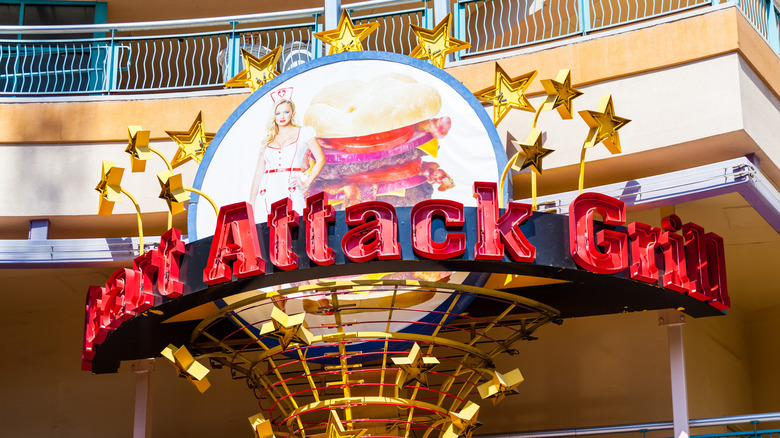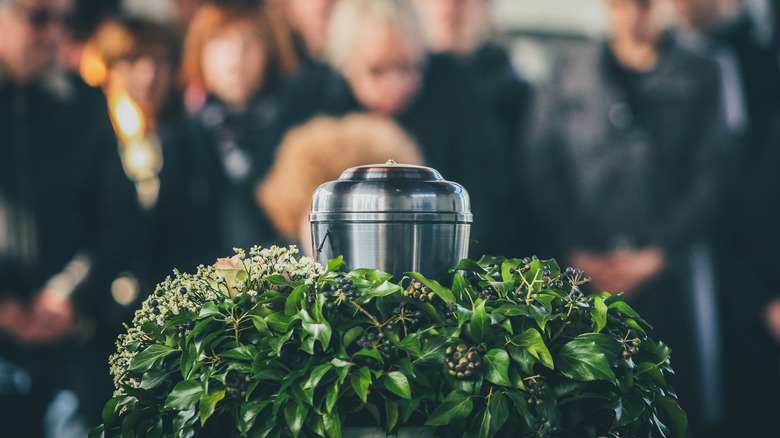Has Eating At Heart Attack Grill Ever Actually Caused A Heart Attack?
The name Heart Attack Grill reflects one very obvious thing: The food is cartoonishly bad for you. As The Talk To explained, that was the point. Jon Basso, the grill's founder, switched from being a personal trainer after becoming disillusioned with the weight-loss industry and being frustrated over people cheating on their diets.
However, Heart Attack Grill is also an accurate description of what could happen to people who eat there. Yes, people have had heart attacks there. No, it was not for branding purposes.
In 2013, John Alleman had a heart attack while waiting for a bus by Heart Attack Grill. CBS noted he was also the unofficial spokesperson of Heart Attack Grill. "He never missed a day, even on Christmas," Basso remembered. This heart attack came a year after another man suffered a heart attack as he ate the 6,000-calorie Triple Bypass Burger.
Alleman was also the second face of the establishment to have had a death linked to their food. In 2011, ABC covered how the pneumonia that took Blair River was probably exacerbated by his obesity. "Obesity increases your risk for just about every condition, and it can make nearly every acute health problem worse," Keith Ayoob, director of the nutrition clinic at Albert Einstein College of Medicine, stated. However, this time the burger was not the prime cause.
Heart Attack Grill advertises death
Most restaurants would place the fact that their No. 1 fan died due to a heart attack brought on by the food under the hush hush. At the very least, you'd think they'd remove the tagline, "Taste Worth Dying For."
However, as Grub Street reported, Basso appeared on Bloomberg's "In the Loop" to present the cremated remains of a customer who died there in a clear plastic bag. "He died of a heart attack at my restaurant, and I am putting that bag clearly on the table. I wish that Burger King and everyone else will do the same thing," he declared.
Basso continued, saying that he didn't want people to die in his restaurant. Rather, as previously mentioned, he wanted his customers to realize that the food they serve could really kill them. Maybe, he hoped, such a realization could prompt customers to live a lifestyle that minimized the risk of a heart attack.

